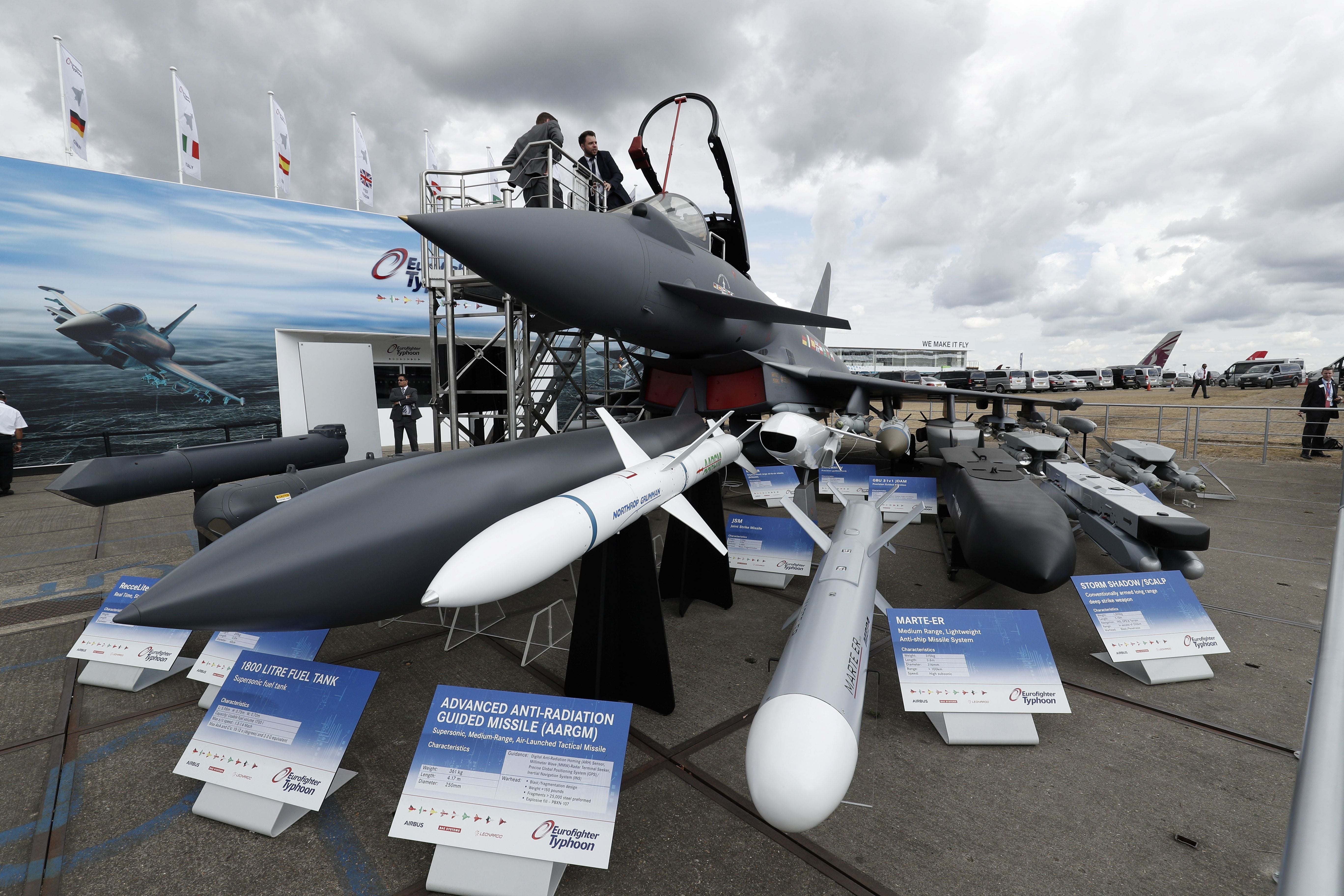Arms industry supplying schools with ‘dystopian’ branded fairy tales for nine-year-old children
Companies promoting their brand in primary schools

Arms companies are supplying branded fairy tale stories for nine-year-olds as part of a "dystopian" marketing drive in primary schools.
Peace campaigners criticised the “bizarre” move by BAE Systems, which says it produces the learning materials to raise awareness among children about career opportunities in engineering.
Primary schools in northwest England were among those to make use of the materials, which arms trade critics say are aimed at sanitising the company’s reputation.
The fairy tales, produced specifically for children in years five and six, feature videos of BAE employees and armed forces personnel reading favourites like Cinderella and Jack and the Beanstalk and posing engineering questions.
The company is also providing schools with branded learning materials for children as young as five years old to do at home during coronavirus lockdowns.
BAE’s website, which has since been updated, said its schools campaign was in part being conducted to “improve our corporate reputation at both a local and national level”.
The fairy stories are just the latest example of a marketing blitz on schools by military contractors and suppliers, who collectively spend millions of pounds a year promoting their brands in schools.
Thales, which has sold arms to regimes like Saudi Arabia, the United Arab Emirates, Egypt and Kazakhstan, runs branded activities for children, including a missile simulator.
Meanwhile Raytheon, manufacturer of the Paveway IV missiles currently being used by Saudi Arabia in Yemen, runs a national dome-building competition for children in UK schools every year.
MDBA, another major supplier of missiles to Saudi Arabia, runs a “robot rumble” for children aged 11 and up in the town of Stevenage where its factory is based.
Andrew Smith of Campaign Against Arms Trade said: “The idea of allowing arms dealers to target young children through schools and home education is bizarre, dystopian and wrong. They are not doing this because of any love for education. It is because they want to build their reputations with children and parents, and sanitise the appalling things that they do.
“The weapons that BAE produces have been used in conflict zones around the world. It has armed and supported some of the most abusive regimes in the world, enabling them to inflict terrible atrocities and abuses against their own populations and those in other countries. None of these awful realities will be included in their lessons plans or propaganda.
“Right now, BAE’s fighter jets are playing a central role in the Saudi-led bombing of Yemen. This has created the worst humanitarian crisis in the world and has seen the destruction of schools and deaths of thousands of school-age children. This is not a fairy tale, this is real life and these are the consequences of its arms sales.”
BAE is Europe's biggest arms company and produces the Eurofighter jets currently being used by Saudi Arabian forces in Yemen. Its portfolio includes combat aircraft, warships, tanks, armoured vehicles, artillery, missiles and small arms ammunition. All bar 5 per cent of its sales are to military buyers.
In June last year The Independent reported that the company had rejected any responsibility for investigating potential or alleged atrocities committed with its weapons by Saudi Arabian forces. Chairman Sir Roger Carr said at the time that the firm would “look to the government who are the people who can do the investigation”.
The issue of arms sales has come to the fore in recent years, following revelations that UK firms have had billions of pounds worth of exports approved to Saudi Arabian forces despite reports of war crimes in Yemen.
A court temporarily suspended arms sales in June 2019 but in July 2020 the government resumed armed sales on the orders of international trade secretary Liz Truss. Ministers accepted that “possible” breaches of international humanitarian may have occurred but said an investigation had shown that they were “isolated incidents”.
A BAE Systems spokesperson said: “As a world leader in advanced engineering and technology, we have a role to play in creating opportunities for young people across the country, helping to address the critical skills gap and support the economic recovery.
“We invest in a diverse portfolio of programmes aimed at inspiring the next generation of engineers, engaging with students to raise awareness of the broad range of Stem-related career opportunities on offer.”
Join our commenting forum
Join thought-provoking conversations, follow other Independent readers and see their replies
Comments

Bookmark popover
Removed from bookmarks